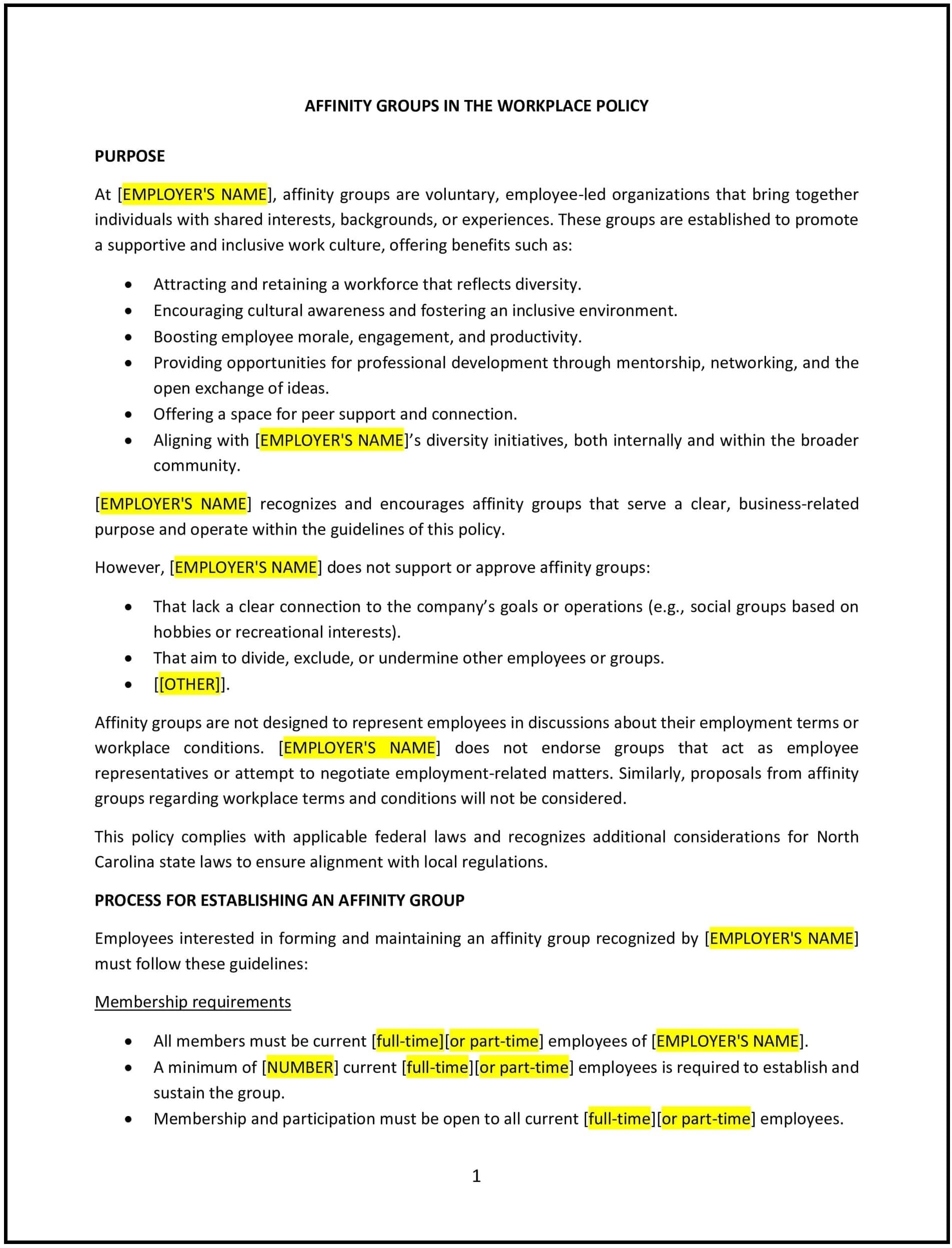Affinity groups in the workplace policy (North Carolina): Free template
Got contracts to review? While you're here for policies, let Cobrief make contract review effortless—start your free review now.

Customize this template for free
Affinity groups in the workplace policy (North Carolina)
This affinity groups in the workplace policy is designed to help North Carolina businesses support employee-led groups that promote diversity, inclusion, and professional development. It outlines guidelines for forming, managing, and participating in affinity groups.
By adopting this policy, businesses can foster an inclusive workplace, enhance employee engagement, and support professional growth.
How to use this affinity groups in the workplace policy (North Carolina)
- Define affinity groups: Explain what affinity groups are, such as employee-led groups based on shared interests, backgrounds, or goals.
- Establish formation guidelines: Provide steps for employees to form affinity groups, including approval processes and required documentation.
- Outline group activities: Describe the types of activities affinity groups can organize, such as networking events, workshops, or community outreach.
- Address funding and resources: Specify whether the business will provide funding, meeting spaces, or other resources for affinity groups.
- Ensure inclusivity: Encourage affinity groups to be open to all employees and align with the business’s diversity and inclusion goals.
- Train managers: Educate supervisors on supporting affinity groups and fostering an inclusive workplace culture.
- Review and update: Assess the policy annually to strengthen alignment with evolving workplace dynamics and employee needs.
Benefits of using this affinity groups in the workplace policy (North Carolina)
This policy offers several advantages for North Carolina businesses:
- Promotes inclusion: Supports a diverse and inclusive workplace by encouraging employee-led initiatives.
- Enhances engagement: Provides employees with opportunities to connect, share experiences, and grow professionally.
- Boosts morale: Demonstrates a commitment to employee well-being and professional development.
- Attracts talent: Highlights the business’s dedication to diversity and inclusion, making it more attractive to potential hires.
- Builds community: Fosters a sense of belonging and collaboration among employees.
Tips for using this affinity groups in the workplace policy (North Carolina)
- Communicate clearly: Ensure all employees understand the policy and the benefits of affinity groups.
- Provide support: Offer resources, such as meeting spaces or funding, to help affinity groups thrive.
- Encourage participation: Promote affinity groups to employees and highlight their activities and achievements.
- Monitor impact: Track the success of affinity groups and their impact on workplace culture.
- Update regularly: Review the policy annually to strengthen alignment with evolving employee needs.